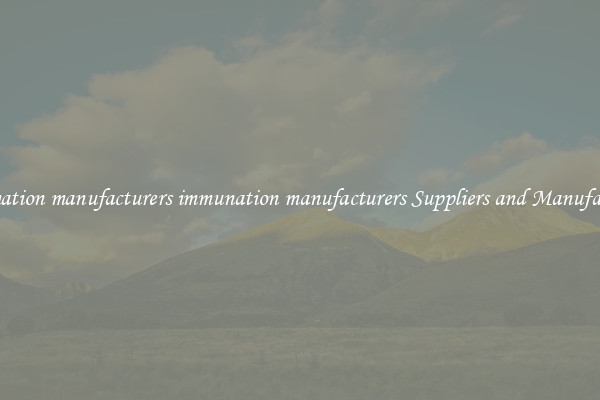immunation manufacturers immunation manufacturers Suppliers and Manufacturers
Immunization is a critical component of public health efforts worldwide, protecting individuals from potentially life-threatening diseases. Vaccines have been instrumental in eradicating diseases such as smallpox and significantly reducing the impact of others, such as polio and measles. The success of vaccination campaigns would not be possible without the dedicated efforts of immunization manufacturers, suppliers, and manufacturers.

Immunization manufacturers play a vital role in developing, producing, and distributing vaccines. These manufacturers are responsible for researching and developing new vaccines, ensuring their safety and efficacy. It involves conducting extensive clinical trials to test the vaccines' effectiveness and safety before obtaining regulatory approval for mass production.
Once approved, immunization manufacturers work diligently to ramp up production to meet the global demand for vaccines. They must establish reliable supply chains and manufacturing processes to ensure an adequate supply of vaccines for immunization programs worldwide. This includes sourcing raw materials, optimizing production lines, and adhering to stringent quality control protocols.
Suppliers and manufacturers are equally critical in the immunization ecosystem. Suppliers provide the necessary materials, equipment, and components required for vaccine production. This includes everything from vials, syringes, and needles to adjuvants and preservatives. Suppliers must meet strict quality standards to ensure that the materials used in vaccine production are safe and effective.
Manufacturers, on the other hand, are responsible for producing the various components that go into vaccines. This includes bulk vaccine antigens, which are often derived from living organisms, as well as excipients, such as stabilizers and diluents. Manufacturers must adhere to stringent manufacturing practices to ensure the integrity of the vaccines and minimize the risk of contamination.
Collaboration and partnerships among immunization manufacturers, suppliers, and manufacturers are essential to ensure the availability and affordability of vaccines. These partnerships enable knowledge sharing, technology transfer, and capacity-building efforts to boost local vaccine production in developing countries.
Public-private partnerships have been particularly effective in increasing vaccine accessibility for low-income countries, as they provide financial and technical assistance to build vaccine manufacturing capacity. These partnerships focus on improving production processes, establishing quality control systems, and facilitating technology transfer. Ultimately, they aim to reduce the reliance on vaccine imports and enhance self-sufficiency in vaccine production.
In conclusion, immunization manufacturers, suppliers, and manufacturers are integral to the success of vaccination campaigns worldwide. Their tireless efforts in research, development, production, and distribution of vaccines have saved countless lives and prevented the spread of infectious diseases. Collaboration among these stakeholders is crucial to ensure the availability, affordability, and accessibility of vaccines for all people, regardless of their socio-economic status. Through these joint efforts, we can continue to protect individuals and communities from preventable diseases and move closer to a healthier global population.

View details

View details

View details

View details








